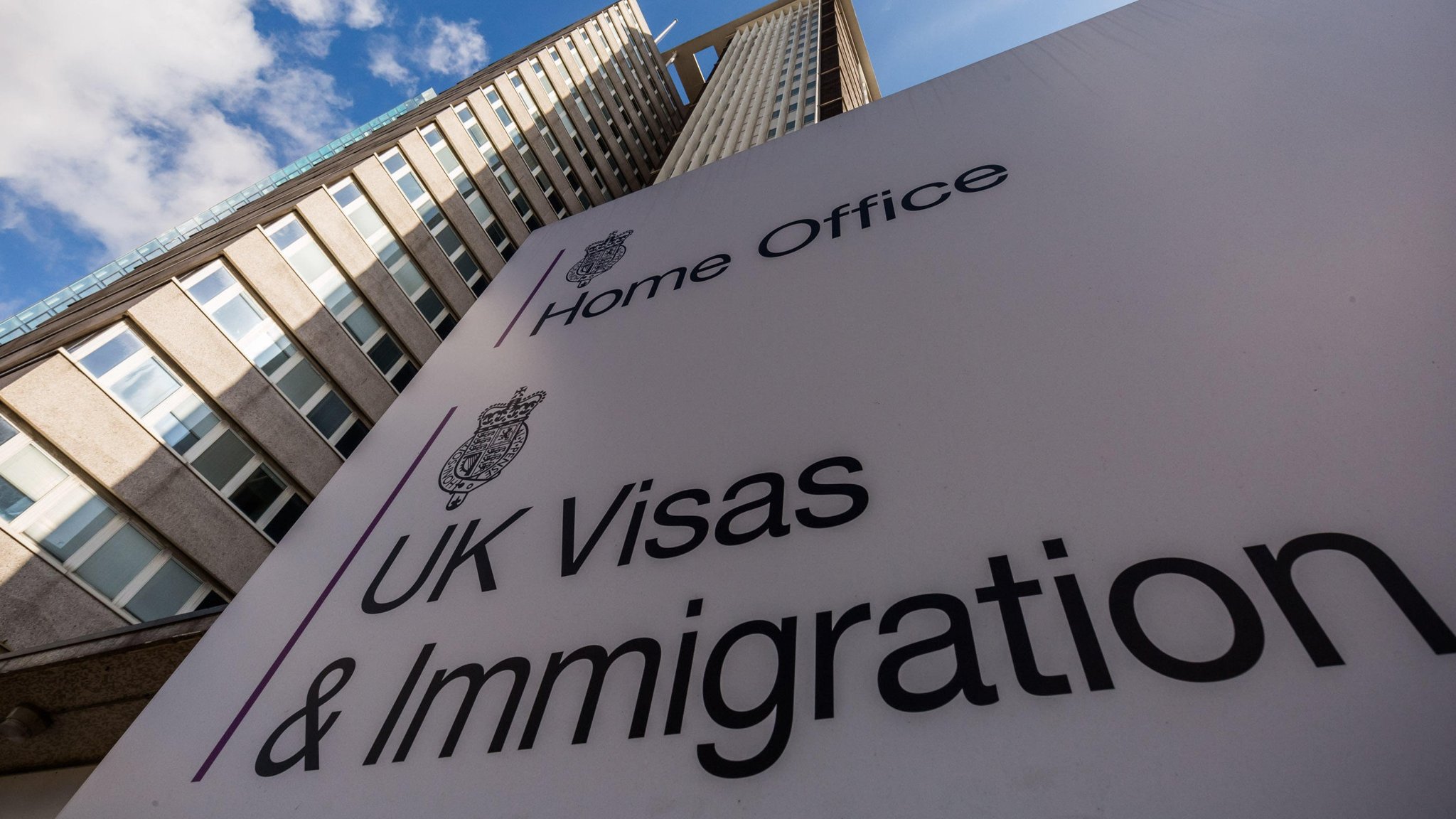By Simukai Tinhu
Twenty years ago, there wasn’t really a Zimbabwean diasporan community in the sense that we talk about it today. Of course, few would go abroad, mostly to study. But with little personal or financial investments in foreign countries, many ended up back home in Zimbabwe.

Today, this trend is being completely reversed.
Many Zimbabweans, particularly those who left between 1995 and 2005, seem to have decided that they are not returning. Popular destinations such as Europe, Australia and United States, have become their permanent homes.
This phenomenon is not anomalous. It is in line with migratory trends that took place in other parts of the world. For example, South Americans who migrated to the US and Canada in the 1960s and 1970s, also harboured dreams of returning home during the early days of their arrival in North America.
Indeed, migrating to the “North” was only seen as temporary; to solve a financial problem at home; build a house; send a child to school; or ensure that a sick relative received medical treatment.
Fast forward 50 years later, studies show that only less than 1% has since made it back to Venezuela, Colombia, Brazil or Mexico. The majority stayed behind and assumed new identities; Mexican Americans or Brazilian Canadians. They even abandoned ties with their kinsmen back home as they sought to consolidate new identities in their adopted countries.
Zimbabwean migrants’ story offers a dusted off version of the Latin American one. From my interviews of five Zimbabweans abroad, whose stories are emblematic of most migrants, it appears that Zimbabwean migrants are taking the trajectory that has been taken by “Latin” Americans who have since permanently settled in the US and Canada; Pakistanis and Indians who have made Britain their home or Indonesian and Malaysian migrants who, in the 1980s, decided to start new lives in Australia and New Zealand.
The circumstances that have made Zimbabwean migrants decide not to return to the South African nation are interestingly different.
Forced by circumstances
In 2010, there was an unexpected turn in the lives of Mduduzi and Nomalanga forcing them to abandon their plans to return to Zimbabwe. The couple was forced to sell all the items that they had accumulated in preparation for the long awaited journey back to their homeland; from tractors and kombis to state-of-the-art electrical goods that included fridges and cookers. They had even stockpiled painkillers.
But a few months before they were due to depart for Harare, their 10-year-old daughter, Theresa, was diagnosed with colon cancer.
“Our daughter was constantly ill. This happened for two years, and one day we took her to the accident and emergency department after she had vomited blood. She was immediately admitted. Various tests were done and the news was devastating,” explained Nomalanga, the experience of that day apparent on her face and trembling voice.
A quick search on the internet indicates that colon cancer rarely affects people of Theresa’s age. It is a disease of the old. This explains her parents’ devastation.
“Why us? Why my daughter? We were angry. But we were lucky.”
Theresa was treated successfully. The total costs of the treatment, they were told by the hospital, was £17 000.
All this was paid for by the world class, British National Health Service (NHS).
“If it were back home, I am sure our Theresa wouldn’t be with us today. Where was I going to get all that money from if I was in Zimbabwe,” Mduduzi became teary.
Theresa now has to attend yearly screening until old age, all paid for by the NHS. By the time that she reaches 18 years, NHS would have spent another £20 000.
“It’s simply because of that. For the sake of our daughter, we are not going back.”
It was evident that Nomalanga didn’t want to talk about it anymore.
New identities
Roger Chikwanha is a partner in a small and obscure hedge fund in London. He makes at least half a million pounds in salaries and bonuses every year.
For the price of a couple of lager beers, he agreed to sit and share with me his story. We met at a lower middle-class pub in Avondale, Pariah State.
Thirty-seven years of age, Roger’s identity has mutated since he arrived in the UK 10 years ago. He arrived on a Imperial College PhD scholarship in chemical engineering before taking up an MBA at Oxford University. While at university, he was recruited by a secretive hedge fund and rose through the ranks to become one of its partners.
He admits that his social circles have played an important role in transforming his identity. He belongs to no less than 10 exclusive social clubs in London and claims to have access to some of the most fashionable and grandest people in London.
No doubt, Roger loves his new social identity. Not only has he immersed himself in upper middle-class British way of doing things, he has also signed up for its traits; sending children to exclusive private schools, adopting English aristocratic manners with self-conscious zeal and he unashamedly flaunts snobbery.
Indeed, Roger is not alone. Alongside many other high-earning and well-connected Zimbabweans and indeed other Africans, he represents a tribe that has, belatedly, been possessed by Anglomania — une certaine idée de l’Angleterre, a passion that has possessed continental Europe and Jews for centuries, and Indians in the last 100 years. Many in the world have succumbed to the irresistible English culture, he says, and Africans are the last frontier.
“Where is your tweed jacket”, we both laughed.
“I am an African British, and so are my children! But I won’t go as far as wearing a tweed jacket or do hunting. Maybe my son,” he laughed.
I couldn’t tell if he was joking or meant what he was saying.
An hour later we drove back to his house that he has built in the plush suburbs of Borrowdale Brooke.
The massive house is a two storey, four-bedroom brick building with evident Edwardian architecture that immediately betrays his fondness for the English way of life. A bowling green at the back garden completes the Englishness of the house. Roger and his wife built the house within three months. With their astronomical wages, they can afford it.
Though completed three years ago, the house remains empty because they cannot move in. They are not returning.
Three weeks later we met in London. I wanted to take a peek at his English way of life, so I visited his £2,5 million Surrey house. Set along a quiet and leafy street, the house presented as pleasant, remarkably unique and with an expensive texture on everything inside it. Italian taste prevailed in the lounge.
The sofas were by Arper and the decorative accessories were by trendy Alessi. I was seated on a sofa next to a white grand piano. Fastidiously groomed, his British-educated Kenyan wife and his son, Tawanda, who is 10, joined us for the interview.
Chelsea-born and deeply proud of it, Tawanda is a top-to-toe English lad. He studies at a top tier British private school, loves apple pie and papers his bedroom with Wasps Rugby Club wallpaper.
Roger explains that his son will struggle to settle in Zimbabwe. Harare is his home and Nairobi is his wife’s home. His son belongs to London. He is English.
“He was born here. He is from here, and we will be here to see his children, and if God permits, our great grand children.”
Better opportunities
Some countries where Zimbabweans have migrated to, want migrants to stay. Canada is a good example. Evidence shows that it is one of the few countries where migrants end up earning more than locals. Unlike the pre-1980s where immigrants, particularly from Africa were practically a slur, today, those with good education and skilled are feted.
This has been a massive incentive to many Zimbabweans who have decided to stay in the North American country.
Tawanda Manyika arrived in Canada as an “asylum seeker”. He admits that he took advantage of Zimbabwe’s negative image in the Canadian media to make an asylum application. In reality, like many, he is an economic migrant. Once he got his residency at the age of 22, his priority was to bring his older brother and younger sister.
By Zimbabwean standards, he was equipped with poor grades in internationally recognised University of Cambridge Advanced Level qualifications in Mathematics, Physics and Chemistry. However, these were good enough for him to enrol for a very sought-after degree course in Actuarial Sciences at Canada’s top university, Toronto University.
“There is no way that I would have qualified to study at the University of Zimbabwe with only six points. I would have needed 15 points to qualify and then to pay university fees,” he said as I interviewed him via Skype.
“But look at me! I now hold a degree qualification from the best university in Canada. Life is funny. I don’t know what I would have been doing in Zimbabwe right now.”
Tawanda now works as a manager for AIG, an American reinsurance company. He has a comfortable salary, is married to a Canadian woman. He says that the strongest factor in not returning home is that there is no demand for his skills.
“I also have a lot of plans for the future,” he continues. “I need to have children, and am enrolling for a Masters degree and maybe PhD after that because I want to teach at university in the future. I believe this country provides better opportunities than my country.”
“I am not coming back,” he finished.
No choice
Most destination countries have started to tighten their borders and toughen their talk in response to nationalism and the growth of anti-immigrant sentiments and political parties, particularly in Europe.
Roughly, before 2004, it was easy for Zimbabweans to travel to and from certain Western countries such as Britain as visa restrictions were not very tough against the southern African nation.
But as most Western countries shift towards tightening the borders and mass deportation, many Zimbabweans decided not to return to visit families for fear of being unable to return. Instead, they adapted to the undocumented life, living as illegal immigrants.
The Mutemas are one of the few lucky ones. They were recently granted temporary residence in Australia, a country that is notorious for its anti-immigration policies.
However, they cannot even contemplate doing a short visit to Zimbabwe as they fear that they might struggle to return. Instead, they are thinking of migrating to Dubai, where IT professionals like them find much friendlier welcome mats.
“I have got a family to look after, brother,” Thomas Mutema tells me via Skype. “Two kids and my wife is pregnant. It’s been hell here (Australia). I am prepared to wait a little longer, get my Australian passport and leave for Dubai or Abu Dhabi.”
The Mutemas say that they cannot return back to Zimbabwe as they fear that all that they have worked for in the past 10 years; to get Australian nationality, might be undone.
“We are near there, and if it means waiting a little longer, we are prepared.”
Commitments
John, has muted the idea of going back to Zimbabwe, but his wife has put his foot down. Having lived in England as illegal migrants, they qualified through the “long stay”, and were finally granted residency five years ago.
His wife, told him that she was going back to school and is now in third year university, studying nursing.
“Why?” I asked John.
“Women’s rights here,” he whispered so his wife, who was cooking, could not hear what he was saying.
John contends that the country is very good for women’s rights.
“Do you think she is going to go back, kneel for my parents, etc, yet here she can become a nurse and an independent woman?”
John works as a nurse assistant, and before his wife enrolled for university they used to work together. They have worked very hard, are sending their daughter and son to an independent school, where they pay about £2 000 each term. Such is an obsession with private school education when it comes to Zimbabweans in the UK.
“My wife is studying, and my children are in school,” he continues, “I cannot just leave them on their own. I have to wait until they finish.”
“What about if your wife insists that she is not returning?”
“I will have to stay. At 53, who do you think is going to genuinely love me if I return to Zimbabwe?” he laughs.
“You have a better chance than anyone else. You will be coming from the diaspora.” We both laughed
But what’s at the heart of John’s decision not to return is that he is one of the early Zimbabwean immigrants. He arrived in 1994, and has been in London for over 21 years. All that he knows; from social circles to shopping is in London, and it looks like he is not prepared to abandon it.
When I used to live in England, I always celebrated Christmas at home. I knew of all the hotspots where diasporans visiting for Christmas would gather for a chat and a little showing off.
Not long ago, the talk on almost everyone’s mouth was preparations they had made to return, and the time-scale they had in mind. Today, that talk has been replaced by the progress that these diasporans have made abroad. Noticeably, the groups have become much smaller.
Simukai Tinhu is a Zimbabwean political analyst based in London.






